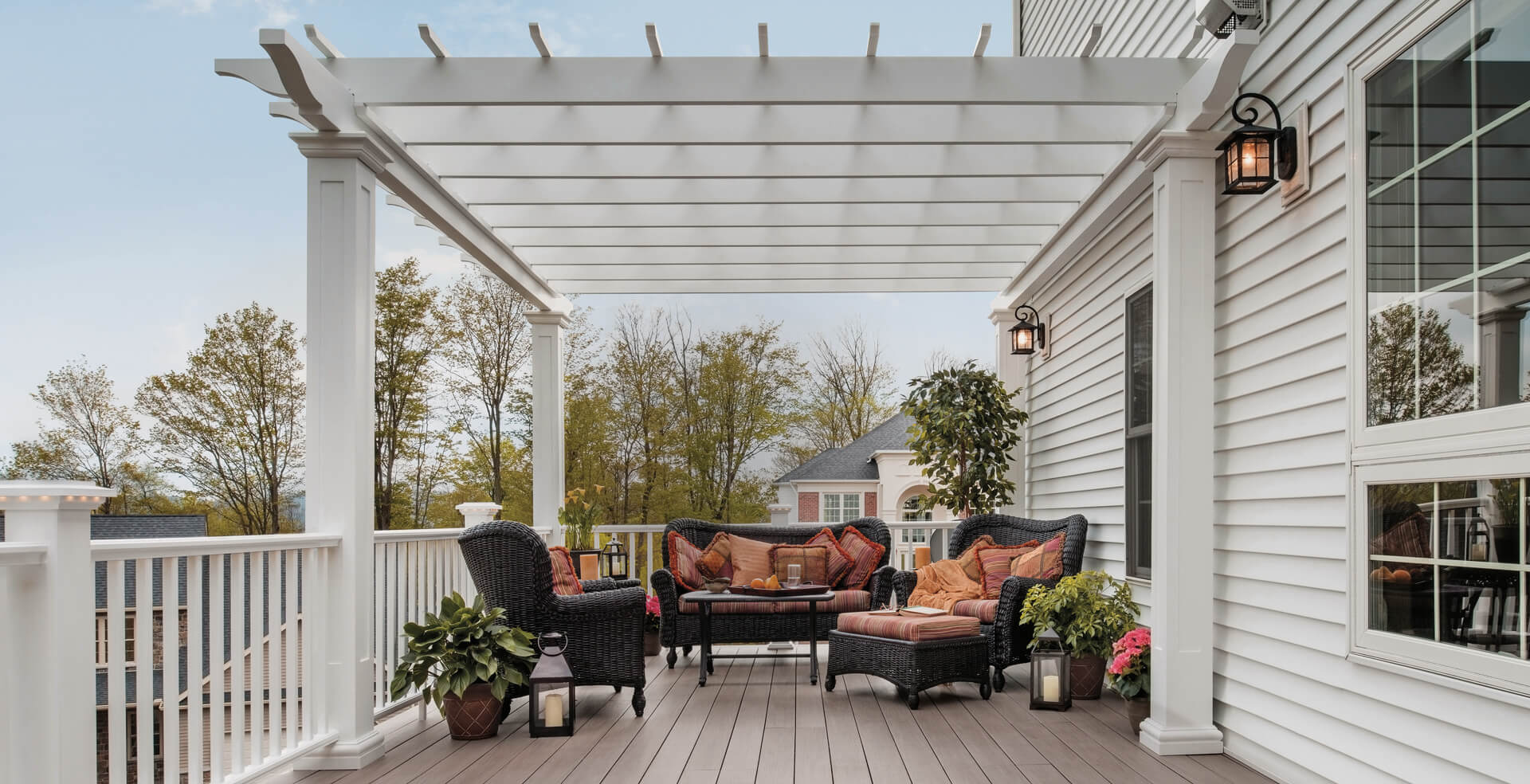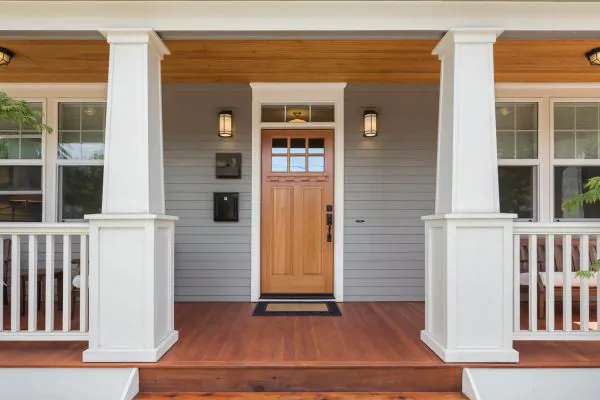Exploring Numerous Kinds and Advantages of Deck: A Comprehensive Overview
The outside deck is greater than simply an extension of one's living area; it's a testimony to personal design, a location for celebrations, and a haven to loosen up. The selection of decking material dramatically affects these facets, with alternatives ranging from the classic appeal of wood to the practicality of composite, and the durability of aluminum. Understanding the subtleties of these products is important, so allow's begin our expedition, one deck kind each time.
Comprehending the Essentials of Decking Product
Outdoor decking material serves as the foundation of any kind of deck task, dictating the total visual appeals, sturdiness, and functionality of the end product. The market supplies a huge variety of materials, each with special qualities suited to various design choices and environmental conditions. The selection consists of natural timber, composite, plastic, aluminium, and even concrete. Wood, being the traditional selection, gives a classic, classic charm. Compound, a mixture of wood and plastic, uses wood-like aesthetic appeals with much less upkeep. Plastic and aluminium offer modern, minimalistic options, while concrete is favored for its unmatched sturdiness. The choice of product substantially affects the deck's life expectancy, maintenance needs, and resistance to aspects. Consequently, comprehending the fundamentals of decking material is critical for a successful deck task.
Advantages and Downsides of Timber Decks
In assessing deck types, understanding the advantages and disadvantages of wood decks ends up being essential. This includes considering aspects such as the kind of timber chosen and its effect on the deck's efficiency. The subsequent discussion will check out these factors thoroughly to offer a detailed view of the advantages and downsides connected with wood decks.

Timber Deck: Cons & pros
The charm of wood decks can not be overemphasized. They exhibit a timeless allure and warm visual that numerous house owners locate alluring. This all-natural material is flexible, permitting a series of layout opportunities, and can supply an excellent return on investment.
Nevertheless, timber decks also include certain disadvantages. They need constant upkeep, consisting of routine cleaning, discoloration or painting, and possible replacement of rotten or deformed boards. Wood is likewise prone to damage from pests and extreme weather. Its long life can be much less than other outdoor decking materials, especially otherwise properly taken care of.
Selecting Your Wood Kind

Exploring the Benefits of Composite Decking
Turning attention to composite decking, it offers unique advantages. Its toughness outshines typical timber in rough weather, decreasing the requirement for regular maintenance. It supplies a pleasing visual appeal with variable style choices.
Composite Decking Longevity Advantages
Regardless of the huge selection of decking options available in the market, composite decking stands out for its sturdiness. This Your Domain Name type of outdoor decking, made from a blend of timber and plastic, supplies a resistant, lasting system resistant to elements that normally degrade various other products. In recap, the longevity benefits of composite decking provide a lasting, cost-efficient solution for exterior living spaces.
Maintenance of Compound Decks
In enhancement to longevity, composite decking boasts a significant advantage in terms of upkeep. Unlike standard wood decks, composite decks are not prone to rot, warp, or insect damages, therefore drastically minimizing the need for regular repair work and replacements. The low-maintenance nature of composite decks not only offers convenience of upkeep yet likewise adds to their lasting cost-effectiveness.
Visual Allure and Variability

The Increasing Appeal of Aluminum Decks: Why Select Them?
As the need for durable and low-maintenance outdoor decking increases, check it out aluminum decks are progressively becoming the go-to choice for many house owners and builders. These decks, made from a lightweight yet durable metal, provide several benefits over conventional wood or composite decks. Light weight aluminum decks are additionally ecologically friendly, as they are frequently made from recycled products and can be recycled again at the end of their life-span.
Maintenance Tips for Different Decking Materials
All-natural timber decks require regular tarnishing or sealing to protect against weather damage, while composite decks need routine cleaning with soap and water to eliminate stains and debris. Understanding these upkeep needs is crucial for deck owners to maximize their investment and keep their decks looking their finest for years to come.
When Choosing Your Deck Kind, aspects to Think About.
What factors should special info one consider when picking the kind of deck to mount? The first facet to examine is the environment. Specific materials are much more durable in certain climate condition. For example, composite decks stand up to moisture well, making them ideal for humid or stormy areas. The home owner's way of living should additionally affect the decision. If they take pleasure in exterior amusing, they may choose a spacious, sturdy hardwood deck. Cost is another substantial aspect. While some might prefer an elegant, exotic wood deck, budget plan restrictions could necessitate a much more affordable choice like pressure-treated timber. Finally, upkeep demands require to be evaluated. Decks needing less maintenance, like vinyl, can be useful for hectic property owners. Therefore, environment, way of life, upkeep, and expense are vital considerations in deck selection.
Verdict
Timber decks charm with all-natural beauty, while composite and light weight aluminum selections offer longevity and low maintenance. Before devoting to a particular deck type, house owners ought to thoroughly take into consideration the advantages, drawbacks, and upkeep needs of each material.
In reviewing deck types, recognizing the pros and cons of wood decks comes to be vital.Regardless of the huge selection of decking options offered in the market, composite decking stands out for its durability. Unlike standard wood decks, composite decks are not susceptible to rot, warp, or insect damage, thus substantially decreasing the need for regular repair work and replacements. These decks, made from a light-weight yet strong metal, provide a number of advantages over traditional timber or composite decks. All-natural timber decks require routine securing or discoloring to prevent weather damage, while composite decks need periodic cleansing with soap and water to get rid of spots and debris.